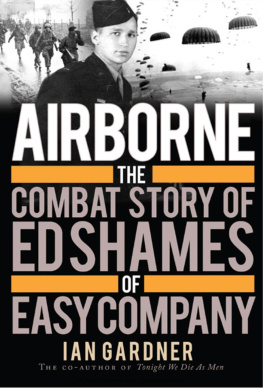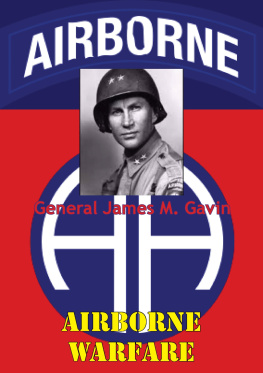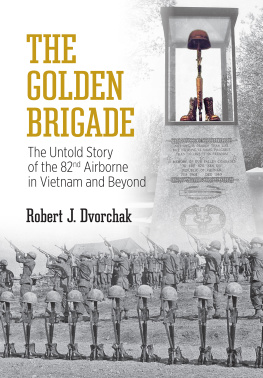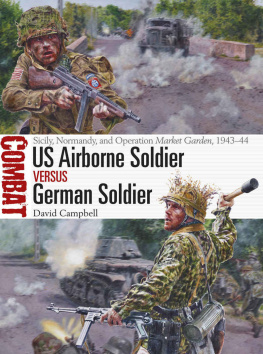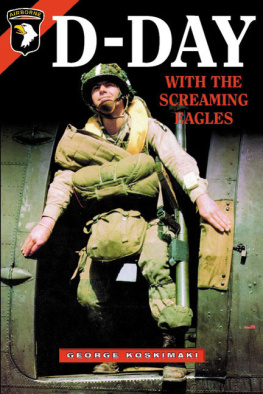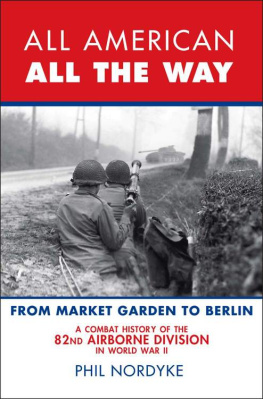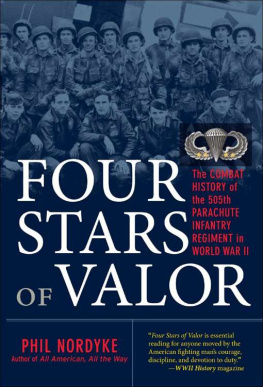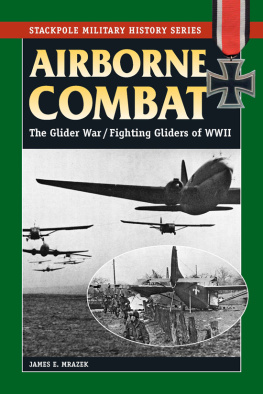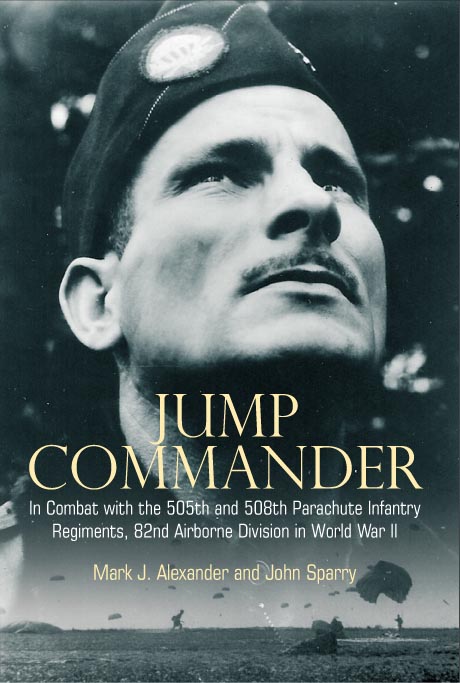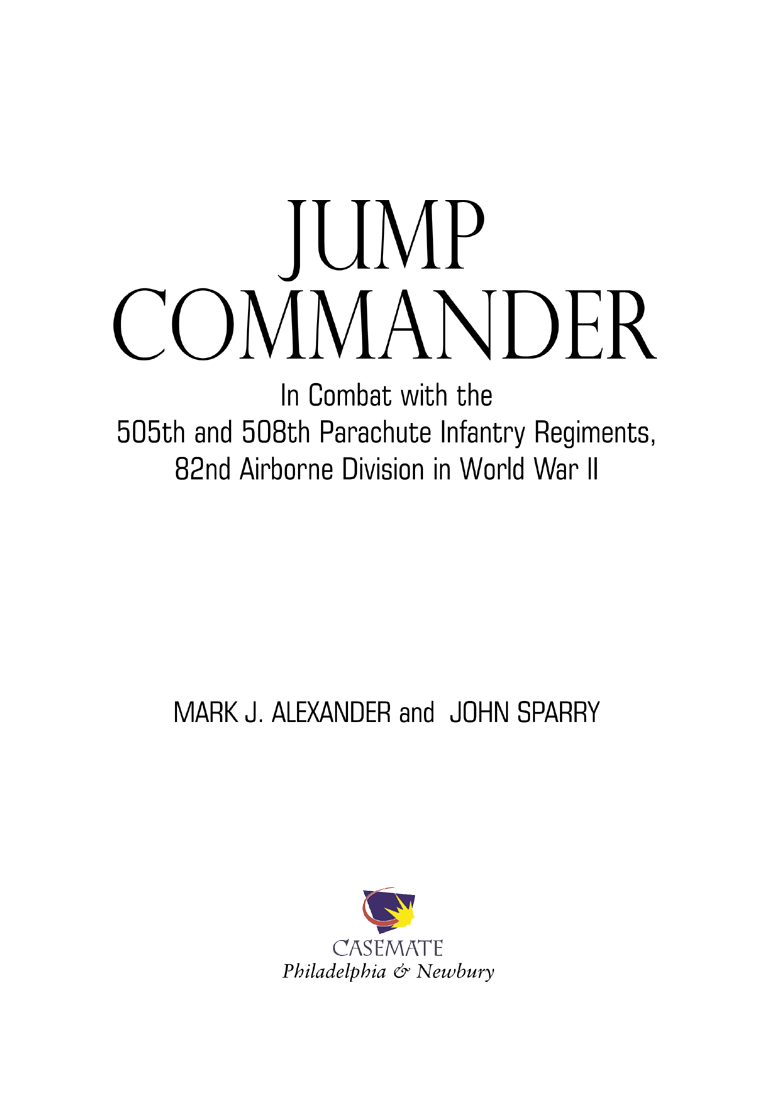I WOULD LIKE TO THANK my grandfathers friends and fellow World War II veterans for their service and for kindly sharing their experiences with me. They put their lives on the line when it mattered most, and I will always be grateful. I would particularly like to mention Jack Norton, Chet Graham, Don McKeage, Otis Sampson, Robert Doc Franco, Dean McCandless, Spencer Wurst, Virgil McQuire and Wilton Johnson, whose conversations and correspondence have added to Mark Alexanders story. I would also like to thank Bob Murphy for his help in checking an early manuscript for errors, and generously supplying photographs.
While writing this book, I very often pushed aside things that needed attention around the house or in life. My wife Kelly was amazingly understanding and encouraging throughout the long process. Im quite sure there were times she felt I would never finish, and without her love and support, I wouldnt have.
Mary Alexander, my grandmother, is the best writer in the family. Reading her memoirs gave me great insight into the kinds of things that really interest readers. Whenever I slowed down or found myself completely stalled on the path towards finishing the present book, talking to her always helped. Her wisdom, strong moral character and good sense of humor kept me grounded.
I must thank my agent, Gayle Wurst, of Princeton International Agency for the Arts. She spent countless hours reading over versions of my extra-long manuscript, then directing and encouraging me on to great improvements. She also did a wonderful job editing the final copy. Without her, it never would have made it into print.
My publisher, Casemate, has a knack for finding truly compelling stories and bringing them to the reader. I am thankful to David Farnsworth and Steve Smith for choosing mine to be among their fine collection of World War II histories and memoirs.
I want to thank Phil Nordyke for his generous help with photographs and maps; Deryk Wills, who tracked down some wonderful pictures in British governmental archives; cartographer Mark Franklin for his quick and excellent map creations; Jim Blankenship for looking up soldiers names and ranks; and Dan Roper and Barbara Gavin Fauntleroy for help identifying quotations.
Finally, a big thank-you to my parents and to my family in general. We have always encouraged each other to follow our dreams.
INTRODUCTION
A WORD FROM THE AUTHOR
IN 2001, I BEGAN INTERVIEWING my grandfather, Mark Alexander (Col. USA, ret), in the hope of later putting pen to paper (or more accurately, fingers to keyboard) and turning his words about his experience in World War II with the 82nd Airborne into a book. I knew he had made three combat jumps and had led three different battalions in front line battle before he was seriously wounded late in the Normandy campaign. His was an amazing story, one that should be captured as fully as possible and, if everything worked out, shared with the world.
However, there were obstacles. We arranged to meet in his office, a fairly large room attached to the main house, but with a separate entrance. The walls were covered with 82nd Airborne memorabilia, and a few shelves held paintings he had recently completed.
As we sat down, I pulled a mini tape recorder out of my pocket, and placing it between us on the desk, hit the record button.
A look of mild alarm crossed his face.
Whats that?
Its a tape recorder, grandpa.
Why do you need that?
He may not have realized at first that I wanted to turn his war experience into a book. Its entirely possible that I kept that nugget to myself, not yet knowing if I would be able to follow through. The point is, he wasnt comfortable being recorded. I turned the tape recorder off and put it away.
Later that night as I went over my handwritten notes and tried to capture all that I could remember on my computer, I reflected back on TV interviews I had seen as a child. The president stood behind his podium answering questions while reporters furiously scribbled down every word. It seemed remarkable that they could capture enough to write a decent article. My writing was far too slow. Clearly I needed either to learn shorthand or somehow use the tape recorder.
Taping our conversations in secret was out of the question. I wouldnt betray his trust in that manner. Instead, I showed up for our next appointment with pen and paper. As we talked, I took notes as before. Every once in a while I would say, Hang on a second, grandpa, pull the recorder out of my pocket, turn it on and repeat something he had said, turn it off, and put it back in my pocket. By the next interview, I stopped putting it back in my pocket and just sat it on the desk. It wasnt long before I was openly recording everything. He even kept the device a few times to capture things that popped into his mind when I wasnt around. This last idea didnt work out very well, because the buttons were small and hard to read. He usually spoke into it while it was paused or off.
Now we were really rolling. I tried to take a long lunch and interview him at least once a week. We did, however, still encounter a few other speed bumps. One was that he skipped over miles of detail. It wasnt in my nature to stop him in the middle of a story, and the first time I heard a new one, I certainly didnt ask questions. I wanted his mind to travel wherever it wanted. The details could be filled in later. I collected follow-up questions about a particular engagement or situation, and he would briefly answer, then go on with the same details he had given me the week before. Eventually I learned to steer the conversation back to the area needing better explanation and also to ask better questions.
My grandfather died in May of 2004, two weeks before I met some of his war buddies in Normandy, France, where they were celebrating the 60th anniversary of the D-Day invasion. I was sad of course, but it was a great experience meeting his friends and hearing how their tales intertwined with those of my grandfather.
I am the caretaker of http://www.505RCT.org, a website dedicated to the 505 Parachute Infantry Regiment, in which my grandfather led the 1st and 2nd Battalions in World War II. Over the last year, I believe I have received over a hundred messages from people looking to know more about a family member who served with the 505. Our association, including some of the few remaining veterans, attempts to provide as much information as possible. Sadly, there is usually little or nothing to report. The soldiers who knew them best have often passed on or cannot be located.
Every veteran stepped up and served his or her country, regardless of capacity, and their stories should not pass with them. If you know a vet, I encourage you to talk to them about their service. If you are a veteran, it may feel strange to write down or record a portion of your life, but if you do, it benefits all of us. Please mention your buddies as well. A description of their personality can be as important, or even more important, than what they did. Did they have a good sense of humor? Could they play a musical instrument? Gems like these help people to know their relatives especially those that they never had the chance to meet.
Those interviews in my grandfathers office opened a door, giving me a view of the drudgery and crazy adventure that was army life in the war, the adrenaline and responsibility of battle, and the holes left when friends died. I saw the shock of first combat, what it meant to look out for your men when it was almost impossible, and what happened if those in charge put their own needs first. Mark Alexander, my grandfather, eventually confided in me things that he hadnt told anyone else, at least not in decades.


